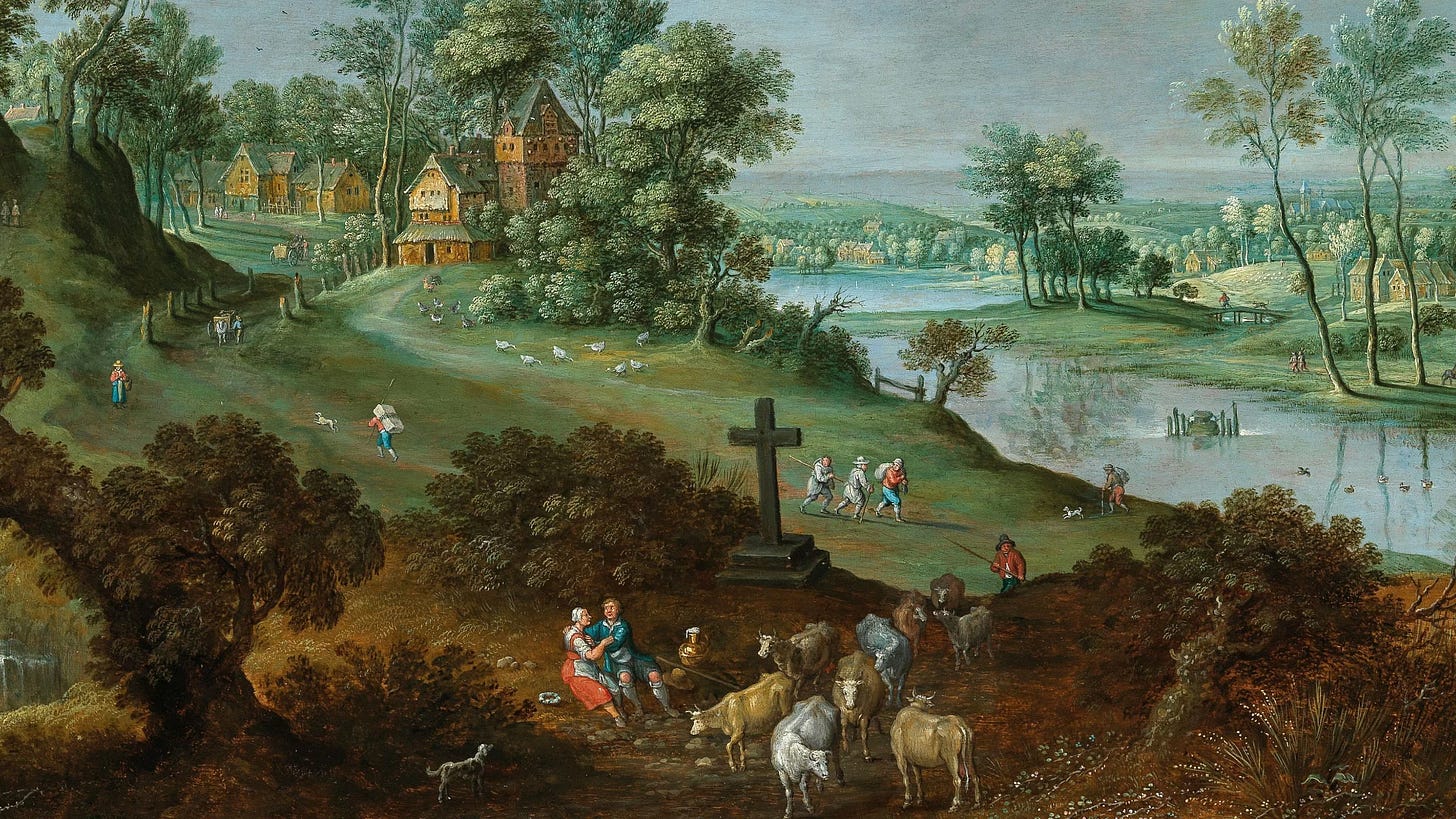Pastors Don’t Have All the Answers
Finding hope in the cross and not in explanations.

I think pastors do themselves a disservice when they feign the notion that they are God’s chosen sages for all of life’s questions. Perhaps it’s the pride that’s so often fostered by countless parishioners seeking your counsel, but pastors can all too quickly become too big for their britches, as the saying goes, as they feed off the need for answers and assume it’s within their purview to supply every single of them. This, of course, is a mistake, one that can very easily spell the ruin of any minister, no matter how seasoned. Pastors aren’t gurus. They don’t have all the answers. But nor are they required to. This is the contention of Kelly M. Kapic in his treatise on sorrow, loss, and grief, Embodied Hope: A Theological Meditation on Pain and Suffering:
Pastors and friends are not called to explain away the pain or to try to give moral lessons for why a particular event is happening. We simply are not privy to such information. While God can and does bring about good through our suffering, that is not the same thing as knowing why God allows it. Nor is it the same thing as saying that God thinks our suffering is good. If we believe that God thinks our physical suffering is essentially good, we misunderstand the Creator and Redeemer, and we are brought to the temptation of having hard thoughts about God, believing him to be more like a dispassionate scientist or a cruel tyrant rather than a loving Father. While it is true that amid our fallen world God can and does work through our pain and suffering, that does not mean he delights in our discomforts. And it does not mean that we can substitute theoretical reasoning for justified lament.1
In my own experience, not having all the answers might be the most gracious response to pain and loss. Those are the precise moments when answers and explanations, though coveted, aren’t warranted or even necessary. “A tragedy is still a tragedy; pain is still pain,” Kapic continues, “even if some insight is gained in the process. We may hope that God had reasons for allowing suffering in his world, but that is very different from thinking we have access to those reasons or can understand why a particular experience of suffering is taking place.”2 In the immediate aftermath of suffering and sorrow, grace often looks like giving the sufferer space to cope and process whatever hardship has befallen them. Rarely, if ever, does that involve putting one’s pain into proper theological or epistemological context.
For my own part, I have striven to take Kapic’s advice to heart. Even though I am sure and convinced that my suffering has an eternal purpose, I may never be privy to that purpose on this side of heaven. Accordingly, I can only hold fast to Christ, knowing full well that he is holding fast to me. Suffering with faith doesn’t mean having all the answers. Rather, it means letting God be God and trusting in his grace, wisdom, and promise to intuit all the jagged mysteries and conundrums of life East of Eden. All those unresolved problems of pain and loss aren’t meant to be unraveled by the likes of us. Pastors who’ve positioned themselves as glorified answering machines for their parishioners’ suffering betray their calling by suggesting that something other than the cross can furnish them with hope when life runs ragged.
The only solution to Earth’s sorrow and squalor is and always will be the cross, where the problem of evil isn’t explained so much as it is endured, as the God of loss emblazons his relentless love for sinners and sufferers in the bruised body of his Son. And therein is all our hope found — not in the explanations we crave but in the love that endures.
Grace and peace to you.
Kelly M. Kapic, Embodied Hope: A Theological Meditation on Pain and Suffering (Downers Grove, IL: InterVarsity Press, 2017), 23.
Kapic, 23.



You don’t get to perform perfection in girth appearance and then use yourself as an example of suffering. How boring.
You write:
“For my own part, I have striven to take Kapic’s advice to heart. Even though I am sure and convinced that my suffering has an eternal purpose, I may never be privy to that purpose on this side of heaven.”
Then you haven’t suffered enough. If you have the gall to proudly declare you can cope worth suffering witb mind games, you don’t even know what you’re talking about.